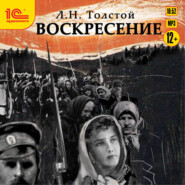По всем вопросам обращайтесь на: info@litportal.ru
(©) 2003-2024.
✖
Sevastopol
Настройки чтения
Размер шрифта
Высота строк
Поля
Kraut made them all lively; he told about the bombardment, he inquired what had been going on in his absence, and entered into conversation with every one.
XVIII
“Well, how are things? Have you already got settled among us?” Kraut asked Volodya… “Excuse me, what is your name and patronymic? that's the custom with us in the artillery, you know. Have you got hold of a saddle-horse?”
“No,” said Volodya; “I do not know what to do. I told the captain that I had no horse, and no money, either, until I get some for forage and travelling expenses. I want to ask the battery commander for a horse in the meantime, but I am afraid that he will refuse me.”
“Apollon Sergiéitch, do you mean?” he produced with his lips a sound indicative of the strongest doubt, and glanced at the captain; “not likely.”
“What's that? If he does refuse, there'll be no harm done,” said the captain. “There are horses, to tell the truth, which are not needed, but still one might try; I will inquire to-day.”
“What! Don't you know him?” Dyadenko interpolated. “He might refuse anything, but there is no reason for refusing this. Do you want to bet on it?..”
“Well, of course, everybody knows already that you always contradict.”
“I contradict because I know. He is niggardly about other things, but he will give the horse because it is no advantage to him to refuse.”
“No advantage, indeed, when it costs him eight rubles here for oats!” said Kraut. “Is there no advantage in not keeping an extra horse?”
“Ask Skvoretz yourself, Vladímir Semyónitch!” said Vlang, returning with Kraut's pipe. “It's a capital horse.”
“The one you tumbled into the ditch with, on the festival of the forty martyrs, in March? Hey! Vlang?” remarked the staff-captain.
“No, and why should you say that it costs eight rubles for oats,” pursued Dyadenko, “when his own inquiries show him that it is ten and a half; of course, he has no object in it.”
“Just as though he would have nothing left! So when you get to be battery commander, you won't let any horses go into the town?”
“When I get to be battery commander, my dear fellow, my horses will get four measures of oats to eat, and I shall not accumulate an income, never fear!”
“If we live, we shall see,” said the staff-captain; “and you will act just so, and so will he when he commands a battery,” he added, pointing at Volodya.
“Why do you think, Friedrich Krestyanitch, that he would turn it to his profit?” broke in Tchernovitzky. “Perhaps he has property of his own; then why should he turn it to profit?”
“No, sir, I … excuse me, captain,” said Volodya, reddening up to his ears, “that strikes me as insulting.”
“Oh ho, ho! What a madcap he is!” said Kraut.
“That has nothing to do with it; I only think that if the money were not mine, I should not take it.”
“Now, I'll tell you something right here, young man,” began the staff-captain in a more serious tone, “you are to understand that when you command a battery, if you manage things well, that's sufficient; the commander of a battery does not meddle with provisioning the soldiers; that is the way it has been from time immemorial in the artillery. If you are a bad manager, you will have nothing left. Now, these are the expenditures in conformity with your position: for shoeing your horse, – one (he closed one finger); for the apothecary, – two (he closed another finger); for office work, – three (he shut a third); for extra horses, which cost five hundred rubles, my dear fellow, – that's four; you must change the soldiers' collars, you will use a great deal of coal, you must keep open table for your officers. If you are a battery-commander, you must live decently; you need a carriage, and a fur coat, and this thing and that thing, and a dozen more … but what's the use of enumerating them all!”
“But this is the principal thing, Vladímir Semyónitch,” interpolated the captain, who had held his peace all this time; “imagine yourself to be a man who, like myself, for instance, has served twenty years, first for two hundred, then for three hundred rubles pay; why should he not be given at least a bit of bread, against his old age?”
“Eh! yes, there you have it!” spoke up the staff-captain again, “don't be in a hurry to pronounce judgment, but live on and serve your time.”
Volodya was horribly ashamed and sorry for having spoken so thoughtlessly, and he muttered something and continued to listen in silence, when Dyadenko undertook, with the greatest zeal, to dispute it and to prove the contrary.
The dispute was interrupted by the arrival of the colonel's servant, who summoned them to dinner.
“Tell Apollon Sergiéitch that he must give us some wine to-day,” said Tchernovitzky, to the captain, as he buttoned up his uniform. – “Why is he so stingy with it? He will be killed, and no one will get the good of it.”
“Tell him yourself.”
“Not a bit of it. You are my superior officer. Rank must be regarded in all things.”
XIX
The table had been moved out from the wall, and spread with a soiled table-cloth, in the same room in which Volodya had presented himself to the colonel on the preceding evening. The battery commander now offered him his hand, and questioned him about Petersburg and his journey.
“Well, gentlemen, I beg the favor of a glass with any of you who drink vodka. The ensigns do not drink,” he added, with a smile.
On the whole, the battery commander did not appear nearly so stern to-day as he had on the preceding evening; on the contrary, he had the appearance of a kindly, hospitable host, and an elder comrade among the officers. But, in spite of this, all the officers, from the old captain down to Ensign Dyadenko, by their very manner of speaking and looking the commander straight in the eye, as they approached, one after the other, to drink their vodka, exhibited great respect for him.
The dinner consisted of a large wooden bowl of cabbage-soup, in which floated fat chunks of beef, and a huge quantity of pepper and laurel-leaves, mustard, and Polish meat-balls in a cabbage leaf, turnover patties of chopped meat and dough, and with butter, which was not perfectly fresh. There were no napkins, the spoons were of pewter and wood, there were only two glasses, and on the table stood a decanter of water with a broken neck; but the dinner was not dull; conversation never halted.
At first, their talk turned on the battle of Inkerman, in which the battery had taken part, as to the causes of failure, of which each one gave his own impressions and ideas, and held his tongue as soon as the battery commander himself began to speak; then the conversation naturally changed to the insufficiency of calibre of the light guns, and upon the new lightened cannons, in which connection Volodya had an opportunity to display his knowledge of artillery.
But their talk did not dwell upon the present terrible position of Sevastopol, as though each of them had meditated too much on that subject to allude to it again. In the same way, to Volodya's great amazement and disappointment, not a word was said about the duties of the service which he was to fulfil, just as though he had come to Sevastopol merely for the purpose of telling about the new cannon and dining with the commander of the battery.
While they were at dinner, a bomb fell not far from the house in which they were seated. The walls and the floor trembled, as though in an earthquake, and the window was obscured with the smoke of the powder.
“You did not see anything of this sort in Petersburg, I fancy; but these surprises often take place here,” said the battery commander.
“Look out, Vlang, and see where it burst.”
Vlang looked, and reported that it had burst on the square, and then there was nothing more said about the bomb.
Just before the end of the dinner, an old man, the clerk of the battery, entered the room, with three sealed envelopes, and handed them to the commander.
“This is very important; a messenger has this moment brought these from the chief of the artillery.”
All the officers gazed, with impatient curiosity, at the commander's practised fingers as they broke the seal of the envelope and drew forth the very important paper. “What can it be?” each one asked himself.
It might be that they were to march out of Sevastopol for a rest, it might be an order for the whole battery to betake themselves to the bastions.
“Again!” said the commander, flinging the paper angrily on the table.
“What's it about, Apollon Sergiéitch?” inquired the eldest officer.
“An officer and crew are required for a mortar battery over yonder, and I have only four officers, and there is not a full gun-crew in the line,” growled the commander: “and here more are demanded of me. But some one must go, gentlemen,” he said, after a brief pause: “the order requires him to be at the barrier at seven o'clock… Send the sergeant! Who is to go, gentlemen? decide,” he repeated.
“Well, here's one who has never been yet,” said Tchernovitzky, pointing to Volodya. The commander of the battery made no reply.
“Yes, I should like to go,” said Volodya, as he felt the cold sweat start out on his back and neck.
“No; why should you? There's no occasion!” broke in the captain. “Of course, no one will refuse, but neither is it proper to ask any one; but if Apollon Sergiéitch will permit us, we will draw lots, as we did once before.”
All agreed to this. Kraut cut some paper into bits, folded them up, and dropped them into a cap. The captain jested, and even plucked up the audacity, on this occasion, to ask the colonel for wine, to keep up their courage, he said. Dyadenko sat in gloomy silence, Volodya smiled at something or other, Tchernovitzky declared that it would infallibly fall to him, Kraut was perfectly composed.

















